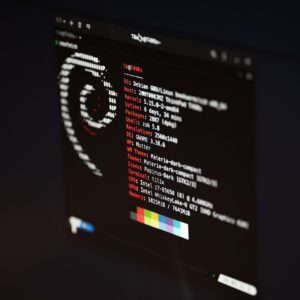Linux, the open-source operating system that powers millions of devices worldwide, is a testament to the collaborative efforts of countless innovators. While the Linux kernel is the product of Linus Torvalds’ genius, it is important to recognize that the Linux ecosystem thrives because of the contributions of many individuals and organizations. In this blog post, we will unveil the life stories of some of the remarkable Linux innovators who have played pivotal roles in shaping the Linux landscape.
To help you better visualize their biographies, we recommend using the biography graphic organizer — StoryboardThat because this tool offers templates and can help you create a visual representation of the life stories of these Linux innovators. It helps highlight key milestones and contributions in a clear and engaging manner.
Linus Torvalds: The Father of Linux
No discussion of Linux innovators would be complete without mentioning Linus Torvalds. Born in Helsinki, Finland, in 1969, Torvalds was just a 21-year-old computer science student when he created the Linux kernel in 1991. His motivation was simple: he wanted to create an operating system that was free and open-source, allowing anyone to use, modify, and distribute it as they saw fit.
Linus Torvalds’ journey began with a humble announcement on a Usenet newsgroup, where he introduced his “hobby” project, the kernel. Little did he know that this small project would become the cornerstone of the entire ecosystem. Torvalds’ leadership and dedication to open-source principles have made Linux the robust, stable, and highly customizable operating system it is today.
Richard Stallman: The GNU Visionary
While Linus Torvalds is often associated with the creation of the kernel, it’s important to acknowledge Richard Stallman’s significant contributions to the broader open-source movement. Stallman, an American software activist, launched the Free Software Foundation (FSF) and initiated the GNU Project in 1983.
The GNU Project aimed to create a free and open-source Unix-like operating system, and many of its components were later integrated into the ecosystem. Stallman’s advocacy for software freedom and his dedication to the principles of open-source software have been instrumental in shaping the Linux community’s ethos.
Eric S. Raymond: The Cathedral and the Bazaar
Eric S. Raymond, often referred to as ESR, is a prominent figure in the world of open source. He is best known for his influential essay titled “The Cathedral and the Bazaar,” which explores the contrasting development models of proprietary software development (the cathedral) and open-source development (the bazaar). This essay has become a cornerstone of open-source philosophy and has greatly influenced the way open-source projects, including Linux, are managed.
Raymond’s insights into the collaborative and decentralized nature of open-source development have been invaluable to the Linux community. He has also contributed directly to various open-source projects and has played a significant role in the development of the open-source community as a whole.
Alan Cox: A Linux Kernel Wizard
Alan Cox is a British software engineer who is renowned for his contributions to the Linux kernel. He began working on the kernel in the early 1990s and quickly became one of Linus Torvalds’ key collaborators. Cox’s expertise and dedication to the Linux kernel have earned him the reputation of being a “kernel wizard.”
Cox’s contributions to Linux have ranged from device drivers to kernel maintenance, and his work has greatly improved the performance, stability, and hardware compatibility of the Linux kernel. His involvement in the Linux community demonstrates the power of collaboration and individual expertise in open-source development.
Ada Lovelace: The First Computer Programmer
While Ada Lovelace predates the modern Linux era by more than a century, her pioneering work in the 19th century laid the foundation for modern computing. Lovelace, an English mathematician and writer, is often credited as the world’s first computer programmer.
Ada Lovelace’s insights into Charles Babbage’s early mechanical computer, the Analytical Engine, included the creation of an algorithm that is considered the world’s first computer program. Her visionary ideas about the potential of computers went far beyond mere number crunching and foreshadowed the principles of modern programming. Her legacy continues to inspire generations of computer scientists and programmers, including those in the Linux community.
Grace Hopper: The Queen of Software
Another trailblazing figure in the world of computing is Grace Hopper, an American computer scientist and naval officer. Hopper is often referred to as the “Queen of Software” for her pioneering work on computer programming languages.
Hopper’s most notable contribution is the development of the first compiler, known as the A-0 System, in the 1950s. This breakthrough allowed programmers to write code in a more human-readable form, which could then be translated into machine code. Her work laid the groundwork for high-level programming languages like COBOL, which have had a profound impact on software development, including in the Linux ecosystem.
Adafruit Industries: Empowering Makers and Hackers
In the spirit of Linux’s open-source ethos, Adafruit Industries is a company that stands out for its commitment to enabling makers, hackers, and tinkerers. Adafruit, established in 2005 by Limor Fried, has grown to become a top supplier of open-source hardware and electronics components.
Adafruit’s dedication to open-source hardware aligns perfectly with the principles of the Linux community. They provide a wealth of resources, tutorials, and open-source designs that empower individuals to create their own electronic projects. Adafruit’s contributions to the maker movement have enriched the Linux ecosystem by fostering innovation at the hardware level.
Conclusion
The Linux ecosystem thrives on the contributions of countless innovators who have shaped the open-source landscape over the years. From the pioneering work of Ada Lovelace and Grace Hopper to the visionary leadership of Linus Torvalds and Richard Stallman, the Linux community is a testament to the power of collaboration, dedication, and the pursuit of knowledge.







